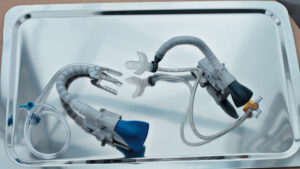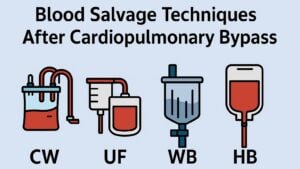Purpose: Infection prevention and control (IPC) has a significant impact on the prognosis after pediatric cardiac surgery. This study aimed to provide surveillance data on the incidence and density of various infections during the COVID-19 epidemic and explore the influence of multi-drug resistant organisms (MDRO) on in-hospital prognosis after congenital heart disease surgery.
Methods: This single-center retrospective study included pediatric patients who underwent cardiac surgery between 2021 and 2022. The results of the postoperative bacterial and fungal cultures and antimicrobial stewardship were collected. The demographic characteristics (age and weight), operation-related parameters (RACHS-1 grade, duration of cardiopulmonary bypass, and aortic cross clamp), and surgical outcomes (extracorporeal membrane oxygenation, delayed sternal closure, mortality, duration of mechanical ventilation, length of intensive care unit stay and hospital stay, and hospitalization costs) of MDRO and non-MDRO patients were compared.
Results: A total of 4776 patients were included. There were 101 infectious culture results after the operation, with a nosocomial infection rate of 2.1%. There were 40 MDRO specimens from 36 patients, 50 non-MDRO specimens from 30 patients, and 11 fungal specimens from 10 patients. The incidence of pneumonia was 1.5%, with a ventilator-associated pneumonia incidence density of 7.2/1000 patient-days. The incidence of sepsis was 0.4%, with a catheter-related bloodstream infection incidence density of 0.24/ 1000 patient-days. The incidence density of catheter-associated tract infection was 0.45/ 1000 patient-days. The incidence of surgical site infection was 0.06%. The culture proportion before commencing antibiotics was 93% and the antibiotic consumption intensity was 30.7 DDD/100 bed-days. The length of intensive care unit stay in MDRO infection patients increased compared with that in non-MDRO infection patients, 30 (18,52) vs 17 (7,62) days, p=0.05).
Conclusion: The IPC performance of Fuwai Hospital achieved satisfactory results. MDRO infection can lead to prolonged intensive care unit stay.
Keywords: multidrug-resistant organism; nosocomial infections; pediatric cardiac surgery; surgical outcomes.







